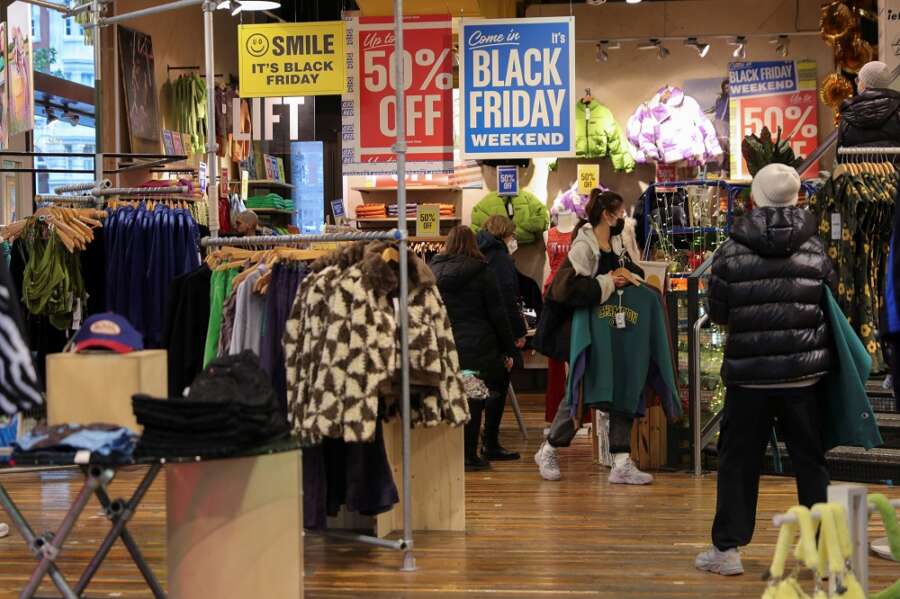
Matthew Peck, CEO of Market Rocket, a specialist Amazon agency explains the value that Black Friday can add to brands, and how to avoid the pitfalls of discount selling.
Black Friday; a key date in the calendar for every retailer. What was once a single shopping day has now been extended to a full week, or even longer, as brands attempt to jump-start their pre-Christmas sales season.
While this retail behemoth is a global phenomenon, in the UK early Black Friday deals have been live at a number of retailers already as the end-of-year shopping event has started sooner than ever before. The big day itself may officially fall on November 25, but with initiatives like the Amazon’s Prime Early Access sale in October, it’s clear there is consumer appetite for Black Friday 2022 to feature a longer period of sales rather than the shorter burst of previous years.
Matthew Peck, CEO of Amazon specialist Market Rocket, explains how brands can capitalise on this boost to the vital Q4 sales period?
“Black Friday is a fantastic opportunity for brands that want to get a real jump on Q4. If you normally sell a hundred units a day and then you sell a thousand units on Black Friday, or even better each day in the weeks leading up to it, then that’s obviously going to have a positive impact on your Amazon sales ranking, which will give you a great springboard into Christmas.
“Equally, if you have stock that you want to liquidate, whether it be new or old stock, then Black Friday is a fantastic vehicle for that too.”
Top tips for black Friday
But, before brands rush headlong in a fight to the lowest price point they can manage as a Black Friday strategy, Matthewhew encourages businesses to first consider their product portfolio and then stock holdings.
“Brands need to ask themselves, is their product mix seasonal, is it regularly gifted? Does it have a peak sales period at Christmas or during the colder weather of the winter months? This, along with available stock levels – or the appetite for running them down is key”, Matthewhew explains.
“If brands want to run more aggressive, Black Friday deals that deplete stock levels to a point that they are unable to fulfil orders throughout their regular Q4 period, then there’s a real chance they are giving away sales that they would have got anyway. Also, if brands have a market leading position then using Black Friday to increase volume at the expense of margin can ultimately be detrimental.”
Black Friday is an unparalleled way to access revenue
But for those brands that have measurable demand, a position of difference in the market and a set of products, which can be fulfilled by Amazon (FBA), Matthew describes Black Friday as a plentiful revenue tap that is ready to be turned on.
“This period in the year, so close to Christmas, is a fantastic opportunity, but brands need to enter into it with their eyes open. You don’t want to be seen to be giving away sales at half price Just before the peak period, because then you will struggle to justify the full RRP or possibly fulfil the next month’s orders during what could be your busiest period.”
A Black Friday Strategy
Matthewhew explains that brands need to conduct far more analysis to succeed at Black Friday
“First of all, you need to seriously consider the category and the competitor products you might be going up against. There are a number of methods available that can identify what offers or discounts other businesses might be running on Amazon. There’s a variety of different tools available, not least a review of what has happened previously; if competitors consistently employ a hard price drop then they are probably going to do so again this year.
“Brands need to be prepared for that and pick the right Stock Keeping Units (SKUs) from their catalogue to cope with the reduced margin, increased volume approach. Most sellers, most brands, have more than one product in more than one subcategory. It’s not really feasible to approach Black Friday by discounting an entire catalogue so being strategic is critical.
“Then brands need the right ads, the right creative and constantly monitor their performance to look for weaknesses or opportunities in their strategy and adapt accordingly through the period. But critically they should also have a plan and a budget for post Black Friday to put advertising in place to support the improvement in sales ranking they will have gained.”
Price Matters
Ultimately, the draw for consumers are the massive price drops retailers are prepared to make in order to steal market share in the run up to Christmas. For this reason, Matthew is clear, above all else, brands need to understand the likely price points of the competition and the level of margin they are prepared to sacrifice in order to drive the volume of sales needed to make a return.
Says Matthew, “It all comes back to price! For a consumer that’s shopping on Black Friday, the single most important factor in a buying decision is the price of the product; how good is the deal they are getting. For sellers it has to be stock levels; there’s no point selling through all the Q4 stock in one day, unless perhaps it is of a discontinued SKU.
“The whole campaign is about price, with so much direct competition on the page, sellers have to be competitive to be considered in the buying decision process, but the trade off is that a massively disproportionate amount of consumers are going to buy that product, compared to competitors’ products selling on the same day.”
ENDS
Matthew Peck, CEO, founded Market Rocket in 2019 along with business partner Mia Briggs following a successful career in e-commerce that saw him create revenues over £50m annually.
In 2022, Market Rocket was acquired by FMCG investment house S-Ventures to boost the performance of its portfolio of brands.
As a verified Amazon SPN partner, Market Rocket specialises in listing optimisation and full-account management on the Amazon platform as well as offering a diverse range of skills, including PPC advertising, design, SEO and PR off platform.


